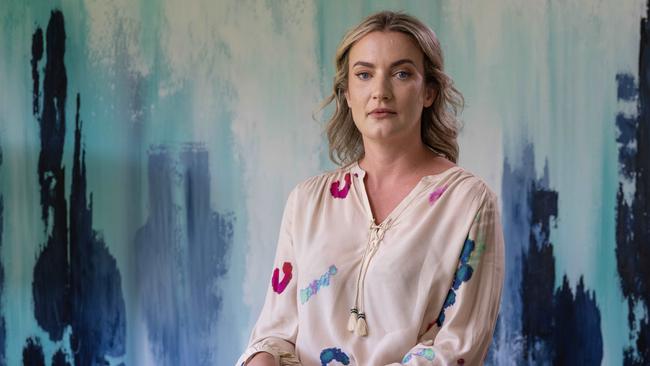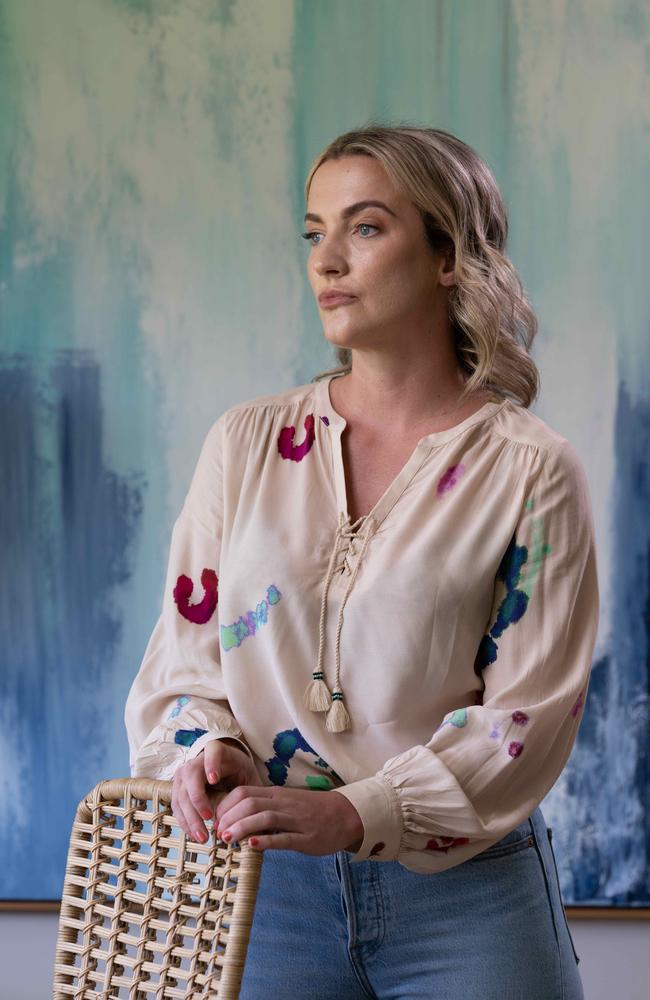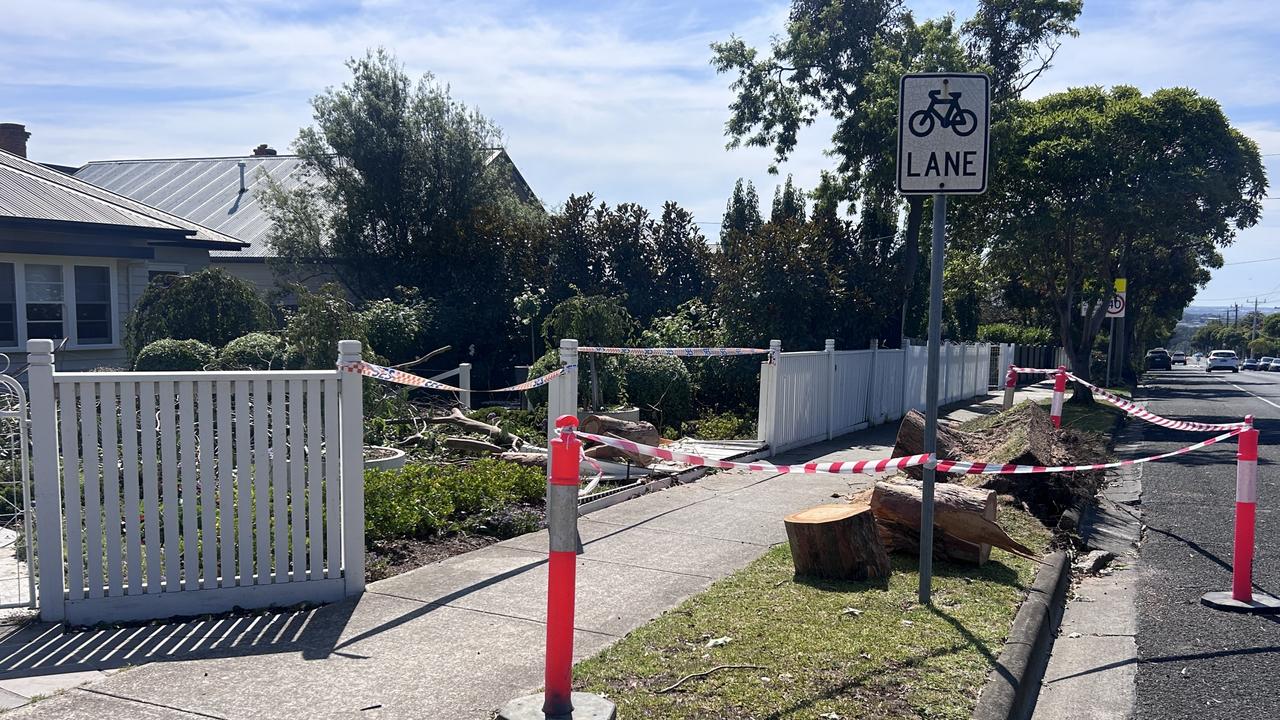Jessica Grace on being diagnosed with ADHD, autism as an adult
Ocean Grove journalist and mum Jessica Grace did not find a late ADHD diagnosis “unlocked a superpower”. This is what happened instead.

Geelong
Don't miss out on the headlines from Geelong. Followed categories will be added to My News.
I bought into the narrative.
Get diagnosed, get medicated, get fixed.
I read the stories, watched the videos and was adamant by pursuing this, life would get better.
There’s no doubt I would get told I have attention-deficit hyperactivity disorder (ADHD) and autism spectrum disorder (ASD).
But this isn’t another story about how a late diagnosis unlocked a superpower.
How I found a group I finally belong to.
Joining women re-emerging in life victorious as a mother, friend, and partner.
As a single mum of two the latter’s not as relevant but the ethos remains the same: find out, be better.
I was convinced life would get easier.
Instead, it was harder.
It had a devastating impact.
Starting with a ripple and ending with a wave of sadness, and a lingering sense of grief.
Thoughts about what I might have been, and the life I could be leading if I’d known as a child.
A heavy heart for the moments I was too much and all the times I told myself I wasn’t enough.
I have spent the past three months in a spiral.
One Zoom appointment in May wiping out a series of systems created over a lifetime.
Faux programs to maintain full-time employment, meet new people, and interact with school and sporting parents.
A myriad of literal and figurative alarms on my phone, in my mind, scattered on the back of different envelopes and receipts.
Formed off every failed interaction, every party or occasion where I embarrassed myself, every staff meeting where I spoke too much.
While these look disjointed or chaotic from the outside, they formed a safety net for me.
An armour of sorts, concealing the oversharing, overtly emotional, highly reactive version of myself who doesn’t have a place in the corporate world, or the world it feels at times.
In my late twenties as a Beyond Blue ambassador, I’d go around to schools, sporting events and groups to share my story about anxiety and depression.
A loved one was very sick, and I found myself in a dark place. I saw a psychologist, went on antidepressants and things improved.

I’d address the crowds and tell them that life can feel hopeless at times, but you just have to stay the course. Get the help you need.
Now a decade later I’m sharing my story again.
To help those adjusting to their new label in the hope it might stop anyone feeling like they’re doing this wrong too.
A couple of years ago I started seeing more and more content about neurodiverse brains.
Checklists for people with ADHD and spectrum behaviourisms.
I joined a month-long waiting list and counted down the days. I’d seen posts from women who felt relief basking in the calm and control of a new diagnosis and medication.
Eventually my appointment arrived and a man with circle glasses asked about my life. My earliest memories of school.
My learning journey surmised simply by ‘Jessica distracts others and is easily distracted’.
When the appointment ended a million images flicked through my mind. Of a little girl and eventually a woman worn down trying to conform to her environment.
I know there is 15-year-old out there losing her shine falling short at every turn. Going on to internalise this feeling of failure until it becomes a part of her identity.
Or a woman in her 20s afraid to go for opportunities because of impostor syndrome. The aftermath of navigating a system not designed for people like her.
Women holding on to relationships and situationships, because they don’t think they deserve better.
When I was a little girl, I had a profound sense of who I was.
You can only be made to feel like you’re doing things wrong for so long, before you believe your faulty.
Even though getting diagnosed was hard initially I feel like at 38 I finally have answers, and as I navigate dating, employment, and parenting, a greater understanding.
Why I view the world the way I do, and subsequently, why I react the way I do.
I spent a large part of my life running away to different countries and cities, searching for spaces where I felt free to be me.
Looking back, I wouldn’t change anything, I’m aware living in the land of ‘what if’ for too long is dangerous.
But I wish I had the knowledge I have now, so I could realise I was running from myself.
Get diagnosed, understand your brain, get control of your processes.
We didn’t design the system but if we must live in it, find a way to do so while holding on to all that makes you special.
My sister is a wonderful teacher and said there has been leaps and bounds in schools to accommodate different learning.
I hope across the board, there continues to be understanding not every child who’s inattentive or disruptive is choosing to be non-compliant.
Same goes for the workplace. I have had wonderful bosses who focus on the quality of work as opposed to the method by which I produce it.
I’d liken my day-to-day life like a duck in water. Feet furiously paddling underneath to stay afloat, acutely aware of how I engage with the world and those around me.
So, I burn out, get depressed, and feel alone at times. Sometimes I bomb so badly it takes me weeks to recover.
If you recognise any of the traits, you’re reading about in yourself, your daughter or a friend, pursue it further.
And if you get diagnosed understand you might regress for a short period before and after.
It’s not all light and liberation … not for me at least and it’s remiss of us to always try and glamorise everything.
Sometimes its just hard, or difficult and that’s OK. They say knowledge is power.
This next chapter will be different. I’m starting again but this time with a solid foundation.
Jessica Grace is an award-winning freelance journalist based in Ocean Grove who is passionate about advocating for mental health.
More Coverage
Originally published as Jessica Grace on being diagnosed with ADHD, autism as an adult




